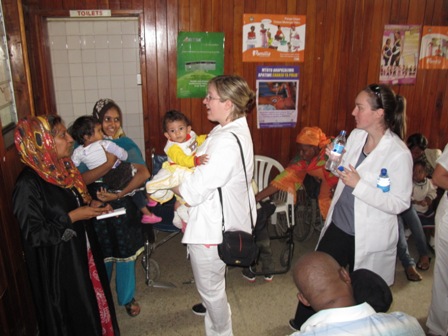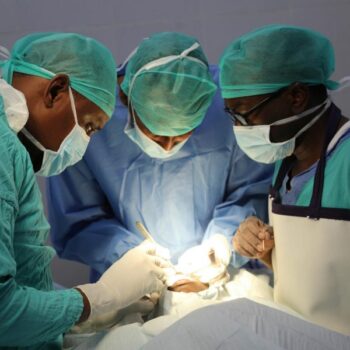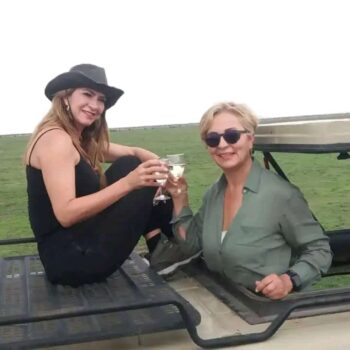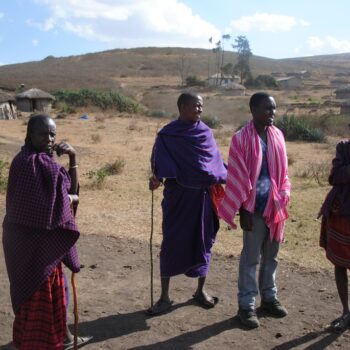MEDICAL INTERNSHIP ABROAD

MEDICAL INTERNSHIPS ABROAD
Tanzania is the perfect choice for the first experience of tropical medicine in Africa. Lacking the equipment and resources more developed countries enjoy, doctors and nurses here have adapted to deliver the best possible front-line healthcare in challenging conditions – making it a fantastic place for students to experience firsthand the sharp end of clinical medicine and surgery. Colorful indigenous cultures still thrive here as they have done for centuries… Even our security guards at the Travellers Africa houses are Masai warriors!
The influence of tribal cultures and traditional medicine practices are also evident in cases you’ll see in the hospitals, adding even greater value to the learning experience. Our twin bases in Iringa and Morogoro are both wonderfully friendly and safe towns, set among the rugged hills of the southern highlands. Iringa offers easy access to the stunning wildlife and untamed wilderness of Ruaha National Park, meaning you can finish work on Friday and be spotting elephants, lions, and giraffes at a waterhole by sunset!
Arusha is perfectly placed for weekend trips to the paradise island of Zanzibar, world-famous for its snorkeling, scuba diving, and white sand beaches. The location of the house and hospital give you the best of both – a genuine experience of African community life off the tourist trail during the week, and dolphin spotting as your soak up the Indian Ocean sunshine at the weekend!
Our Tanzania program can accommodate 123 students per week making it a great place to get to know other students interested in careers in healthcare from all over the globe. Amani Hostel provides opportunities to gain hospital work experience for students interested in medicine, nursing, midwifery, and dentistry.
Pre-Medicine Work Experience in Tanzania Want to know what being a doctor is really like? Our overseas medicine work experience placements are the perfect way to find out. Whether you are looking to gain valuable medical work experience to put on your UCAS application or an in-depth insight into working in a hospital, there is no better way to learn more about medicine than shadowing clinical experts carrying out their day-to-day duties.
During your time on placement, you will be placed in a different department every week, according to your interests. Within this department, you will be assigned a doctor who will act as your mentor, explaining cases to you and answering any questions you might have. The type of cases you will observe depends on which departments you are working in.
You can choose from General Surgery, Pediatrics, Orthopedics, Obstetrics and Gynecology, Internal Medicine, and many more. As well as spending time on the wards or in the operating theatre, you will also receive several clinical teaching sessions a week, after you have finished in the hospital for the day. These classes are a great way to understand more about healthcare in the region you are working in, and to pick up some clinical skills, such as stuttering or dressing wounds.
Our placements are perfect for a range of students, including those in year 12/13 looking to gain experience before applying to study medicine at university, gap year students, those studying for their undergraduate degree in a non-clinical subject (for example biomedical science) who hope to go on to medical school and students in their first year of a clinical degree course. Students generally spend two weeks on a medical placement with us, although it is possible to join the program for anything from one week upwards.
Our programs run all year round, so you can choose when you would like to go, and how long you would like to go for, 52 weeks of the year. Working in a hospital overseas is a great experience, not only because of the close-up clinical experience you will receive. It is also a great way to learn about healthcare in other countries and to observe the ethical dilemmas doctors face day to day in less well-funded hospitals in other parts of the globe.
The cases you will observe will also differ from what you would generally see at home – Typhoid, Dengue Fever, Tuberculosis, and Malaria are all a good contrast to what you might find in your local hospital!
A placement overseas is also a great way to turn two weeks of medical work experience into the adventure of a lifetime! From going on Safari in Tanzania, there are plenty of opportunities to make this experience truly unforgettable! Pre-Nursing Work Experience in Tanzania If you are interested in becoming a nurse, our pre-nursing program is a great way to find out more about what the role involves, and to get an insight into which areas of nursing might be of most interest to you.
In an increasingly competitive field, it is important to have as much relevant work experience under your belt in order to help you secure a place on the training course of your choice. Our overseas pre-nursing placements can be tailored to your interests:
Our pre-nursing students can choose to work in the following departments: General Medicine, Surgery, Emergency Medicine, Obstetrics and Gynecology, Pediatrics, Internal Medicine and many more! Whilst getting a feel for what areas of nursing interest you the most, you will also have the opportunity to see cases that you may never have the chance to observe back home – tropical diseases such as Malaria, TB and Typhoid are all common in our hospitals overseas.
All hospitals in each country have a range of departments. Examples of the types of cases you might be working on include the aftercare of neurosurgery patients in the Czech Republic, the care and rehabilitation of stroke patients in Thailand, neonatal complications or Malaria patients in Tanzania. Working in one of our partner hospitals overseas also allows you to get an insight into the difference between healthcare in other countries and your own.
Facilities in some of our partner hospitals are very basic and nurses often have to make difficult decisions on which patient to tend to first, as they are often so short-staffed.
Your pre-nursing placement starts here: Students age 16 or over are welcome to join one of our programs. Students at school or college who are currently thinking of enrolling for nursing at university, those on a Gap Year, undergraduate students in other disciplines who are hoping to get into postgraduate nursing, or those in their first year of a nursing degree are all welcome to join this program. The average length of placement with us is two weeks, although anything between one and four weeks is popular too, and some students choose to stay even longer! Our programs run all year round, so you can decide when you would like to go, and how long for.
Generally, working hours in the hospitals are between 8 am and 2 pm. depending on what department you are in, you could be spending time on the wards or in the operating theatre. You will be assigned a nurse who will act as your mentor whilst you are on placement.
They will guide you through each case, advising you on any procedures that they are carrying out, and answering any questions that you have. Several times a week, you will have clinical teaching sessions with one of the mentors, who will go through some of the cases you have observed in more detail, as well as teach you some basic clinical techniques, such as how to take a patient’s blood pressure or how to dress wounds effectively. As well as learning lots which will help you in your future career, taking part in one of our overseas placements is a great way to see a new place and have unforgettable experiences!
From going on safari at sunset in Tanzania to snorkeling on the south coast of Thailand, there are plenty of ways to make your trip unforgettable! Pre-Dentistry Work Experience in Tanzania Our pre-dentistry program is a great way to get a real insight into dental care. With tough competition for university places, getting good work experience is more important than ever. Learning from highly qualified dentists in a clinical setting will really help your personal statement to stand out to admissions tutors. Spending time working closely alongside a dentist will also help you to decide if a career in dentistry is right for you.
Each of our overseas destinations provides a unique pre-dentistry experience: Throughout our dental placements, our students will be working with experienced dentists who will explain each patient’s case in detail. Our mentors are also very happy to answer any questions that you may have. This is an observational placement (as our students have not yet obtained any clinical experience) but there may be some opportunities to help with hands on tasks, such as taking a mould of a patient’s mouth. Dentistry in Tanzania is mainly restorative (as people do not go to the dentist routinely) therefore patients often require extractions, fillings and root canals. Thailand and Czech Republic also have an emphasis on cosmetic dentistry, such as teeth whitening or implants. All destinations see trauma cases.
Your dentistry experience starts here:
Working in a dental practice overseas will help you to gain a deeper understanding of the differences in healthcare around the world. In many of the countries we work with, there will be more cases of decay than in the UK. Many of the government practices we work with are also very underfunded and short-staffed, which will provide an interesting contrast to dental facilities back home. As well as getting some fantastic work experience in dentistry, taking part in one of our programs is a great opportunity to explore an exciting new place.
From going on safari in Tanzania to bamboo rafting in Thailand, each destination has plenty to ensure your spare time is unforgettable too! Students who join our pre-dental program are generally between 16-18 and in year 12 or 13 at school or college, looking to gain this experience before applying for dentistry at university.
Gap year students, those studying an undergraduate degree and hoping to apply for dentistry as a postgraduate or those in their pre-clinical years of dentistry also join this program.
Students can travel with us for anything between one and four weeks, or longer. The most popular length of time is two weeks. Our programs run every week throughout the year, so it is possible to join whenever is most convenient.
Pre-Midwifery Work Experience in Tanzania Our pre-midwifery placements are a great chance to gain experience working alongside midwives and other health professionals in a real-life hospital environment. Students have the opportunity to observe births and C-sections at close range.
Each of our destinations provides a unique pre-midwifery experience:
In Iringa Regional Hospital in Tanzania, students can observe between 10 and 15 births a day on average. Generally, these are complex cases as women don’t come to the hospital for a straightforward birth. Thirty percent of these deliveries are by C-section, which makes for a varied placement! In Arusha in Tanzania, there is an entire branch of the hospital dedicated to maternity. This branch serves the whole island, so it is always busy and there are high numbers of births to observe every day!
Students in Tanzania generally split their time between observing births (both natural and surgical) and antenatal care in obstetrics and gynecology and caring for newborn babies in the neonatal unit. The Czech Republic has very modern facilities including a state-of-the-art 4D ultrasound, so it is a great place to observe antenatal procedures, as well as labor itself.
Your Midwifery Experience starts here:
You will be assigned a mentor within the department you are working in. They will guide you through your time in the hospital, explaining each case to you step by step, and answering any questions that you have. Our programs are suitable for many students; those in year 12/13 hoping to apply to study midwifery at university, gap year students, and those looking to apply to postgraduate midwifery programs.
This experience can really help your UCAS application to stand out from the crowd, and it is a great talking point at the interview. It is also a good way of working out if a career in midwifery is really for you. Our pre-midwifery programs run every week throughout the year, so you can decide when you want to go. The most popular length of time to join one of our programs is two weeks, but anything between one and four weeks (or more) is fine!
Community Volunteering in Tanzania
We deliberately don’t refer to our healthcare placements as medical or nursing ‘volunteering’ to avoid confusing the aim of student learning with the kind of service that requires years of clinical training to provide in a hospital environment. However, a lot of students who join us also want to make a real contribution and help others while away – and that’s what our community volunteer placements are all about.
We have a range of volunteer opportunities in all of our destinations, most of which are based around care work with children. We work with orphanages, care homes, and special schools, all of which operate with limited resources and really value an extra pair of hands. You don’t need specialist skills to get involved, just time, energy, and genuine motivation – but if you do have a particular talent for art, music, sport, or anything else it can probably be put to good use!
Volunteer placements are very flexible; you can spend time helping out during free afternoons and evenings, or at weekends. >Surgery Volunteer >Introduction;
AMANI HOSTEL surgery elective is designed for students interested in surgery. It is an opportunity to get significant hands-on experience in both minor and major surgery as well as more specialized surgical areas, depending on the student’s interest and the type of elective placement.
Given the integrated management in most hospitals in developing countries and the limited resources and health care staffing constraints, students will have a vast exposure to various surgical disciplines as they rotate through the hospital during their placement: General Surgery: This offers students a supporting role inpatient care including pre-operative evaluation, operative intervention and post-operative care and management.
While under supervision, the student will be involved in pre-operative decision making such as patient assessment and counseling, obtaining informed consent, pre-operative medication e.g. thromboprophylaxis, prophylactic antibiotics, blood transfusions, anxiolytics and glycaemic control.
Preoperative imaging and radiographic and sonographic interpretation is also an essential part of our program. The student will also assist intra-operatively in major theatre surgical conditions that require general anesthesia like resection and anastomosis, explorative laparotomies, partial bilroths gastrectomy and total gastrectomys, appendicectomy, total and subtotal hemicolectomy, fashioning colostomys, peritoneal toilet.
Thyroidectomy, Pancreatectomy, splenectomys and cholangietectomy, hernia repairs are also common. Skin grafts and flaps, surgical toilet the student will also get minor theatre time and assist in procedures under local anaesthetic like simple wound management and debridement, primary and secondary skin closures, incision and drainage, ganglion removals, excisional and incisional biopsies, fine needle aspirations, chest tube placement and removal.
They will also get to watch central nervous line placement and cantor tube placement, suprapubic and urethral catheterization and assist in nasogastric intubation. Post operative participatory care will include fluid and electrolyte management in burns and stoma care. Surgical patient analgesia and pain management. Stoma care. Heamatology and pathology lab interpretations, Imaging and nutrition. Reviewing of abdominal drains and management of donor/recipient sites in grafts.
In addition to the above, our general surgery experience will expose students to other procedures or enhance skills such as history taking and physical examination. Participation in conferences, case based learning and rounds will be expected. Podiatric Surgery:
This gives a student the chance to observe and under a supervisor, may perform various procedures on foot, ankle and lower leg, administer procedures focusing on disorders of the lower extremities including damage caused by such chronic conditions as diabetes, and trauma to the feet and ankles, the student will also administer various procedures to congenital malformations Orthopedic Surgery: Opportunity to participate in diagnosis and active treatment of patients, including case application, manipulation of simple fractures, closed and open reduction, management of orthopeadic implants like external and internal fixation.
Knail insertion, k-wire insertion and plate &screws are all common occurrences. The student will also get to participate in POP application, attend surgery and post-op management.
Burn Surgery: Participate in burn related critical care, fluid and electrolyte resuscitation, review of heamatologic indices. Management of surgical wounds and surgical procedures related to burn care like skin harvesting and grafting, escharotomys, counseling, reconstructive surgery. Exposure will include care of both major and minor burns patients. Critically injured techniques will be invasive critical care, Swan-Ganz catheter insertion and monitoring, amongst others.
Trauma & Emergency Surgery: Opportunity to get involved with dealing with acute trauma patients. Students learn how to effectively manage patients during the resuscitative and evaluation phases of care. Application of the ATLS protocols, management of multiple trauma, and the management of shock. They will handle emergency intervention such as chest intubations, tracheostomy, and fluid management of shock.
Participants will follow patients through treatment and their rehabilitation from acute trauma and help monitor some patients. They will also take responsibility with the attending to develop appropriate treatment and rehabilitation plans for these patients. The students will work under the direct supervision of the attending and will be expected to attend any conferences and case based learning held. Surgical Critical Care: Offers student opportunity to get involved in managing critically ill surgical patients in both the intensive care units and high dependency unit. This will be done both preoperatively and postoperatively.
Students learn how to use invasive monitoring and support systems. They also get opportunity to perform procedures such as insertion of arterial lines, central lines, and intubations, perform history taking, physical examination, daily notes and orders, evaluation and treatment planning. Students will work under surgery department resident and attending and are expected to attend any bedside teachings and conferences.
Surgical oncology: Students get surgical experience focusing on the care of patients with malignant and benign disorders, both inpatient and in the surgical outpatient clinic. Their experience will span preoperative, operative and postoperative management and continued care.
Oral and Maxillofacial Surgery: Students participate in the surgical management of oral and head and neck pathology e.g. cystic hygromas, thyroid carcinomas, cleft palate &lips and the correction of congenital and traumatic deformities like Le fort fractures and orbital blow-out fractures. Acute trauma care is a major component. The student will have some responsibility for inpatient care. Students will have the opportunity to perform or assist in minor procedures in the clinic, as well as the emergency room, and operating room, under supervision.
Rural Surgery: Provide students with diverse and challenging aspects of the practice of rural surgery by participating in clinics as well as outpatient and inpatient surgical cases. Students will participate in evaluating patients presenting with emergency conditions and to perform or assist with invasive monitoring and treatment procedures. Pediatric Surgery: The student will be an integral part of the surgical team and participate in evaluating and managing pre- and post-operative pediatric surgical conditions including neonatal intussuception, tracheo-esophageal fistulas, posterior urethral valves, spina bifida, umbilical hernias, trauma and will assist in operative care.
Related opportunities to learn the essentials of pediatric enteral and parenteral nutritional support, invasive and non-invasive monitoring procedures and techniques, respiratory support techniques, and a variety of pediatric vascular access procedures are available depending on placement facility. The surgery elective is targeted at medical students, residency doctors and students pursuing surgery as a specialty, and is a fulfilling way to pursuing an away elective or just to volunteer their skills to underserved communities while experiencing healthcare in a different setting.
The AMANI HOSTEL Program Highlights A supervised, structured and safe elective program abroad Program is designed in an established network of teaching hospitals and monitored by consultant doctors and registered nurses We evaluate our participants during and at the end of the program (please see our information booklet for our evaluation form) to ensure that program objectives are met Opportunity for hands-on experience is unmatched; depending on level of clinical exposure, our participants get extensive hands-on experience in a supervised setting.
Participants also get a chance to see both different types of diseases and cases at advanced stages, that they rarely see in the developed world We have strong relationships with hospitals in which we place our participants and the doctors that they work with, ensuring a very productive experience Participants acquire an invaluable opportunity to work in a low resource setting which supports character development and benefits the local community The Travellers Africa Program Objectives: The Travellers Africa programs, whether for medical students, new doctors or resident doctors, are designed to provide participants with the opportunity for an immense hands-on experience than they would get in their own health systems.
Our program objectives adopt the Accredited Council for Graduate Medical Education (ACGME) competencies framework, focusing on the following areas:
1. patient care
2. medical knowledge
3. practice-based learning
4. interpersonal and communication skills
5. professionalism
6. systems-based practice
Projects: The core of the project is the immense Hands-on clinical experience that gives medical students and volunteers a rare opportunity to practice their various skills. The program can either be rural or urban based depending on your preference In addition to the core teaching and outreach project/component, all our programs have a volunteering component as a way to give back to the communities we work in; depending on the location/camp where your program is located, participants get involved in a wide range of volunteer projects, depending on their interests such as: Community development, especially on healthcare and educational issues Wildlife conservation Environmental conservation Marine conservation Sports development Some past volunteer projects have included orphanage visits, teaching kids how to swim, visiting Elementary schools and making essential donations such as books and pencils.
See gallery Adventure Depending on location, participants have the option to get involved in a wide variety of adventures, over and above the clinical and volunteering components. There are separate and optional activities that will need to be reserved separately: Mountain trekking at Mt. Kilimanjaro, Mt. Kenya and Mt. Meru Gorilla tracking Beach time Biking Scuba diving, white water rafting, and various other marine sports A walking tour of Nairobi, Arusha or Mombasa A walking tour of Kibera Slums
More info: please send us an inquiry if you need more program questions or need more info, if you are ready to apply, please go ahead and apply at; info@amanihostel.com



